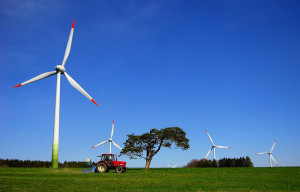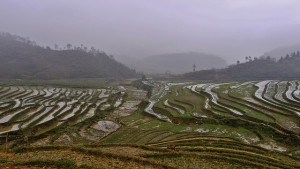Centre for Environmental Strategy Research Fellow James Suckling introduces the EPSRC funded new project “Stepping Up”:
We live in a rapidly changing world. Governments and industries are slowly waking up to the realisation that we are on an unsustainable course in to the future. Pollution from our energy systems is creating a global warming problem which we will struggle to curtail without drastic action. In some areas of the world, water is coming under increasing pressure as we try to grow crops to supply the worlds rapidly growing population. We face the ever more difficult task of growing greater quantities of food in an environment which is increasingly under stress to let us do so.
This is a problem which can be easily summed up in a few key figures. By 2050 we need to produce enough food to feed 9.7billion people. That is set against a backdrop of a system in which we lose 30-50% of food before it is consumed by humans. This is in a world where we already struggle to feed everybody effectively.
Classically we have sought to tackle the issue in one arena at a time, by investigating how to improve food, water or energy sustainability in isolated silos of research. In addition, they have tended to be treated as separate entities by governments when deciding on policy. However, in recent years the realisation that these three items cannot be dealt with in isolation has led to an interest in the point where they all meet: the Water-Energy-Food Nexus. The recognition of the WEF nexus is akin to the tenet that you cannot achieve true sustainability without addressing the issue from each of environmental, sociological and economic perspectives.
With that in mind, I recently joined Dr Angela Druckman on the EPSRC funded project Stepping-Up. It is a large multidisciplinary project involving numerous partners including Manchester, Cranfield, Exeter, Abertay, Loughborough and Glasgow Universities as well as HR Wallingford and the STFC. Together we hold expertise in sustainability, global warming, systems simulation, governance, water and soil environmental science.
The project is going to investigate niche innovations in sustainability that happen at the WEF nexus at a variety of scales, from household, through small business, council and regional, right up to national. It will then look at the effect of what would happen if those innovations were scaled up to become the dominant practice. We will be seeking case studies which exemplify innovations with the potential to achieve step change (or significant change at a greater rate than something incremental or gradual). This innovation can take any form and be applied at any stage in the life cycle of food, from when it is grown, through its harvest, transport, retail, consumption and disposal. Once we have identified the most exciting case studies to work with, we will collect data on what makes them truly innovative and incorporate that data into a model of the existing infrastructure. We can then investigate how these case studies could potentially revolutionise the sustainability of our food, water and energy systems. We will even be able to test the scale of the impact under different climate change conditions. It is an incredibly ambitious project in its scope!
The fantastic part is that innovation can occur absolutely anywhere in the UK and be done by anyone. It should be a fascinating exploration of what people do, sometimes without being aware of it. But that also comes with a significant challenge: How do we find and catalogue all of those potentially great case studies? We will have to become very good at digging out those innovators, many of whom may not have a presence on the web or in the usual academic publication haunts. A challenge, but hopefully one that will reap great reward!


